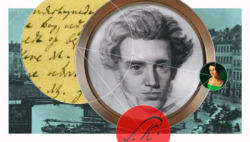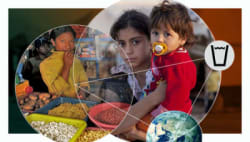Images
Learn what motivates the restive Muslim youth from Tunis to Tehran, what political positions Islamists from Mali to Chechnya are fighting for, where the seeming obsession with Islamic law comes from, where the secularists have vanished to, and whether it makes sense to speak of an Islamic state. Since 2009 there has been a renewed wave of popular unrest sweeping throughout much of the Muslim world. Secular, but generally repressive and inefficient autocracies have come under pressure or been swept aside entirely. At the same, the various Islamic Republics have not fared much better, but been convulsed by internal unrest, economic and social decline. Throughout the Muslim lands, existing constitutional arrangements are being challenged, often very violently. This course is a survey of the constitutional ideas and institutions that have developed since the mid 19th century throughout predominantly Muslim countries, but its focus will lie on the actors that have dominated this discourse and shaped its outcomes. We will look at the large body of classical writings on the Islamic state only in so far as it is necessary to understand the contemporary debate, but concentrate on the legal and political developments of the 20th and 21st centuries. Three common themes will characterise the course: We privilege the study of the legal and social reality and seek to highlight where it is at odds with dogmatic stipulations, be they religious or constitutional. We seek to illustrate the practical tensions posed by limited administrative capabilities and political legitimacy that resulted from the incomplete reception of modern bureaucratic statehood. We seek to examine how popular dissatisfaction with the practical performance of Muslim governments has fuelled demands for greater accountability under the guise of cultural authenticity. Ultimately, the course aims to equip participants to better understand Muslim contemporary discourse about the res publica, better contextualise the demands for religious law in public life, and to better ascertain the theoretical and practical feasibility of postulated religious alternatives to the still-dominant secular model of governance.
Similar resources
A world-class research university
Driven by intellectual creativity and critical thinking since 1479, researchers and students at the University of Copenhagen have expanded horizons and contributed to moving the world forward. With its 5,000 researchers and 37,500 students, the University boasts an international research and study environment and is highly ranked on the leading ranking lists of the world's best universities.
The University offers researchers and students the opportunity to develop their talent and launches ambitious interdisciplinary initiatives to support its strong academic communities. Through research-based teaching – and by involving them in research – students are equipped to address society's challenges and needs.
The University of Copenhagen is working towards becoming one of the world’s greenest campus areas, leaving as little environmental and climate footprint as possible. The University facilitates cross-organisation collaboration, liaises with the business community and helps students find relevant programmes and projects in the field of sustainability.
The University also focuses on gender equality and sees diversity as a strength.


Søren Kierkegaard - Subjectivity, Irony and the Crisis of Modernity

Measuring Causal Effects in the Social Sciences

The New Nordic Diet - from Gastronomy to Health

Origins - Formation of the Universe, Solar System, Earth and Life









